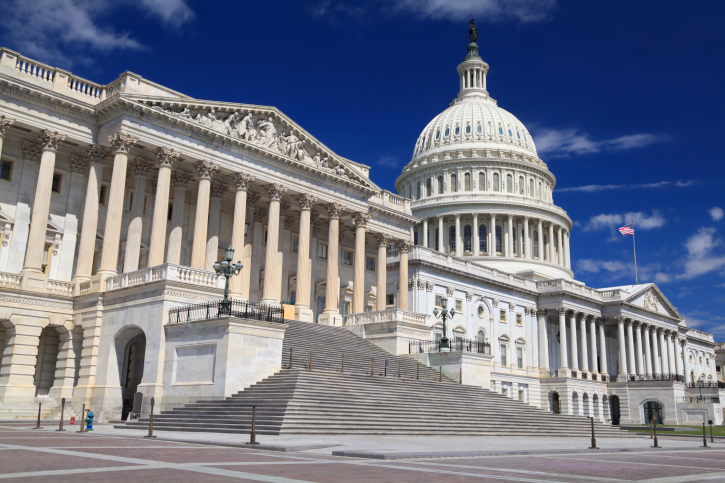Underscoring his commitment to transform the U.S. energy sector and to ensure American compliance with the recently agreed upon Paris U.N. Climate Change Conference agreement, President Barack Obama rejected bills that would have overturned the administration’s controversial Clean Power Plan (CPP) through the use of a pocket veto, whereby laws are halted because the president fails to sign or veto pending legislation.
“The Clean Power Plan is a tremendously important step in the fight against climate change,” Obama said in a statement. “[T]he resolution would overturn the Clean Power Plan, which is crucial in protecting against climate change and ensuring the health and well-being of our nation. I cannot support it.”
Obama’s decision on the “Resolutions of Disapproval” passed by Congress under the Congressional Review Act (CRA) was unsurprising. The bills struck at the core of the administration’s plan to reduce emissions from coal-fired power plants.
Unable to get Congress to approve cap-and-trade legislation in his first term, Obama had the Environmental Protection Agency (EPA) write regulations limiting carbon dioxide emissions from new and existing power plants, claiming his administration had the authority to impose the rules under the Clean Air Act.
“Congress was unsuccessful in its direct attempt to cut the EPA’s Clean Power Plan, so it resorted to a more indirect approach: The recent budget agreement passed by Congress and signed by the president reduces EPA funding by an amount equaling a 20 percent budget reduction for the agency since 2010 according to Republicans,” said Merrill Matthews, a resident scholar at the Institute for Policy Innovation.
Court Battles Ongoing
The battle over CPP shifts to the courts. Upon the Senate’s approval of the CRA resolutions in November, Sen. James Inhofe (R-OK), chairman of the Senate Environment and Public Works Committee, anticipating a White House veto, said the best hope for bringing down the Clean Power Plan would be through lawsuits filed challenging it.
Inhofe told The Daily Caller, “27 states, 24 national trade associations, 37 rural electric cooperatives, 10 major companies, and three labor unions representing 878,000 members are now challenging the final rule in court.
“This rule faces a dead-end road with these entities requesting a judicial stay that will put the rule on hold early next year,” Inhofe told The Daily Caller. “There will be no possibility of legislative resurrection once the courts render the final judgments on the president’s carbon mandates.”
Matthews also believes lawsuits could dismantle Obama’s CPP.
“The better hope for ending the federal power grab may come from the states, which have found lots of new reasons to embrace the Constitution’s federalism and challenge federal overreach,” Matthews said.
‘The Climate President’
Because the Paris climate change agreement did not require countries to legally bind themselves to reduce emissions, if signatories are to meet their promised emission targets, they must do so through enforceable domestic regulations.
If the courts strike down CPP, the United States would have a much more difficult time reducing its greenhouse gas emissions by the 26–28 percent by 2025 commitment Obama made in Paris.
“President Obama clearly does not have the support of Congress or the American people, which is why he didn’t openly veto these resolutions, but instead allowed them to be pocket-vetoed,” said Dan Simmons, vice president for policy at the American Energy Alliance. “The president claims this is all about climate change, yet these regulations will have no impact on the climate.
“This is really about protecting his legacy as the ‘climate president,'” said Simmons. “Unfortunately, this legacy will come at a great cost to the American people, as it will destroy jobs, increase electricity rates, and wreck the economy.”
Bonner R. Cohen, Ph.D. ([email protected]) is a senior fellow at the National Center for Public Policy Research.





